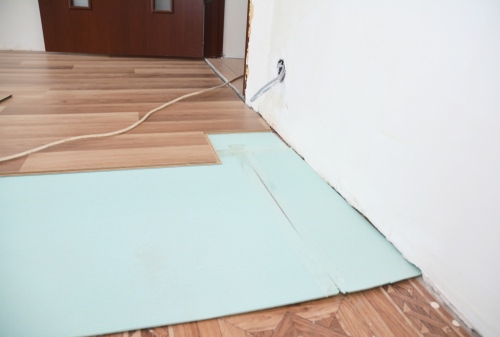6 Sound Proofing Ideas For A Quieter, Peaceful Home

Everybody wants to go home after the day’s hard work and relax quietly and peacefully. You might already invest in comfortable furniture and relaxing lighting, but you’re still not feeling the total relaxation you want.
Construction of houses and buildings now involves the use of lightweight and hollow materials and encourages open spaces. Due to urbanization, most of the people now live with the hustle and bustle in cities, where noise pollution can’t be controlled.
Soundproofing your home is a great way to block noises around your house. Here are some soundproofing ideas on how you can do it:
1. Check your windows
Your windows connect the space inside your home and your surroundings. The sound waves can easily enter through the windows.
Check if there are spaces between the window frames and walls or there are misaligned glass in window panes. You can put soundproof inserts between these spaces to block outside noises from coming to your house.
You can also put soundproof draperies and thicker curtains. Aside from blocking harmful sun rays coming into your house and keeping the interiors cool, these can also prevent sound waves.
If you have enough budget, you might want to replace the windows in your home with multiple-layered panes to block more sounds effectively.
2. Install drywall
Although this can be expensive, this is a full proof way of blocking noise entering your house. Installing drywall in the walls of your home will add a layer in the existing walls. Drywalls are composed of sound-absorbing materials and will prevent sound waves from entering the house.
3. Decorate your walls
The cheaper alternatives of drywalls are quilted materials or soundproof wallpapers which work the same and can even improve the aesthetics of your home.
Another idea to soundproof your homes is to do some furniture rearrangements. The primary purpose when soundproofing your walls is to create a thicker barrier in the walls, which will prevent noises from penetrating inside the house.
You can put bookshelves, cabinets, and drawers beside the walls. If you’re working on soundproofing your living room, you can place your sofa in the center of the room and surround it with shelves and wall paintings.
4. Modify your doors
Aside from windows and walls, your doors might also be a factor why noises can enter inside the house. Some doors are hollow in between the panel, making it ineffective in blocking noise pollution. Look for solid doors, usually made of high-quality wood so that it will make your rooms quieter and more peaceful.
If you want to work on your existing doors, you can install a soundproof blanket. It’s just easy to install it since you have to hang and stick it on the doors.
The space between the door and the floor also allows sound waves to enter the room. You can soundproof it by placing door sweeps at the bottom. Not only it prevents dust, moisture, and insects entering the wall, but noises too.
5. Install carpets or rug pads
If you’re living with wooden floors, you always experience hearing loud footsteps and creaking sounds whenever there’s movement in the house. Wooden floors are usually hollow, so it’s very easy for sound waves to penetrate between them especially if you’re living in an apartment or condominiums where you have neighbors on all corners of your place.
A great idea to minimize noise and soundproof your room is to install carpet in the flooring of your home. This way, there’ll be a cushioning effect between any force or pressure applied to the wooden floors.
If the carpet isn’t enough, you can sandwich in between the floor and the carpet rug pads to add more barrier. Make sure that the pads are thick enough to make it more soundproof.
6. Check your appliances
You also need to consider things inside your house like washing machines, dryers, fans, air-conditioners, and even refrigerators. If you’re living in a small space, these appliances can contribute to the noises in your house as well.
-
* Make sure that your bedroom isn’t close to the areas where these are located.
-
* Proper maintenance of these items in your homes will prevent unusual sounds coming from your appliances.
-
* You also need to consider quiet fans or air-conditioners when you’re planning to purchase for your home.
Final thoughts:
There’s a lot of ways on how you can soundproof your home. The main idea to make your home soundproof is to create a thicker barrier in the walls and block spaces in your doors and windows so that noises won’t enter inside your room. You should also consider the items in your home that can potentially create noise when you use them. Proper arrangement and maintenance is the best way to deal with your appliances so that it won’t contribute unnecessary sounds so that you can relax in your peaceful home.

